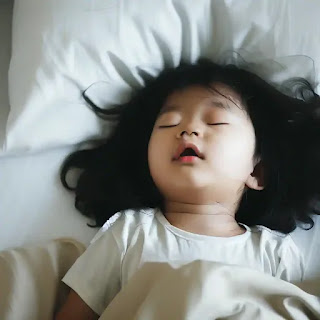Problems in the oral and dental development of mouth-breathing children.
Parents who detect their child is a mouth breather should take them for a dental check-up.
Oral health complications in children are one of the main reasons behind their absence from school. Therefore, it is advisable to undergo a dental evaluation before the start of the school year. This will allow potential oral health problems to be identified early and addressed promptly.
The dentist deals with cavities, lesions, and bite problems and can detect other issues requiring attention, such as mouth breathing. This habit can have an impact on both the child's oral and general health.
- Facial changes: Mouth breathing alters the growth and development of the jaws. Mouth breathing is related to open bite, narrow palate, and receding jaw.
- Misaligned teeth: mouth breathing can affect the position of teeth, which can become crooked and crowded, making hygiene difficult and increasing the risk of tooth decay and gum disease.
- Bite problems: mouth-breathing children often have jaw problems, making it difficult to bite and chew food effectively.
- Oral dehydration: Mouth breathing causes dry mouth and decreased saliva production, creating a propensity for tooth decay, bad breath, and bacterial buildup.
- Snoring and nighttime coughing: Because the child does not breathe through the nose, it is difficult for him/her to live and have a restful sleep when lying down.
- Sleep apnea is a respiratory pause during sleep and prevents good oxygenation and proper rest.
- Irritability, lack of attention, and tiredness.
- Repeated otitis and low hearing.
Abnormal breathing.
Mouth breathing in children can be caused by various conditions, including allergic rhinitis, sinusitis, nasal septum deviation, respiratory infections, enlarged vegetations or tonsils, and muscle weakness.
It is important to note that breathing through the nose serves a crucial defensive function. When air enters the nose, the nasal hairs act as filters, trapping dust particles, viruses, bacteria, and fungi before they reach the body. In addition, the nostrils help to warm and humidify the air, preventing it from getting too cold and stimulating the production of nitric acid. This substance facilitates the distribution and absorption of oxygen in the lungs.
Mouth breathing performs none of these beneficial functions. Instead, it involves inhaling air that is more polluted, unconditioned, and drier. Therefore, if a child is found to be mouth breathing, it is important to seek evaluation by a dentist and physician. They can determine the underlying cause and recommend appropriate treatment to correct this problem and prevent its possible consequences.
It is common for some parents to have the misperception that primary teeth, also known as baby teeth, are unimportant because they will eventually fall out. However, these teeth play crucial roles: they maintain the space needed for the eruption of permanent teeth, facilitate proper chewing and pronunciation, and contribute to a child's self-esteem. Poor oral health in the primary teeth can be a risk factor for future permanent teeth. Therefore, delaying the first visit to the dentist until the child is 2 or 3 years old can adversely affect oral health.

